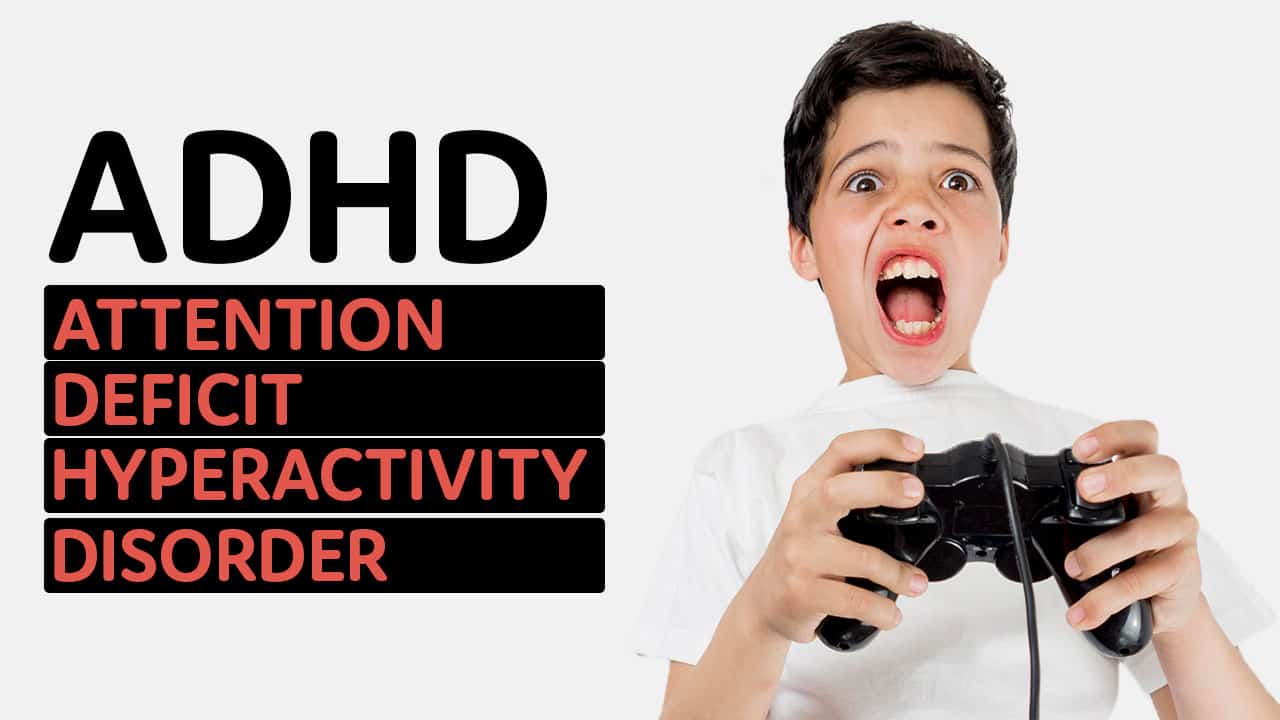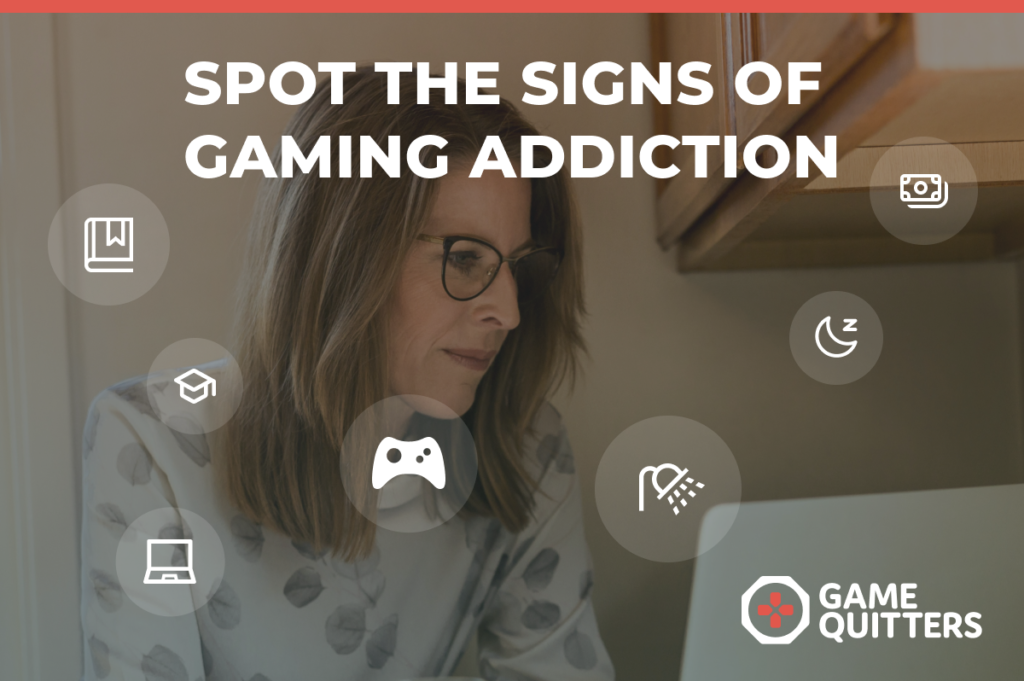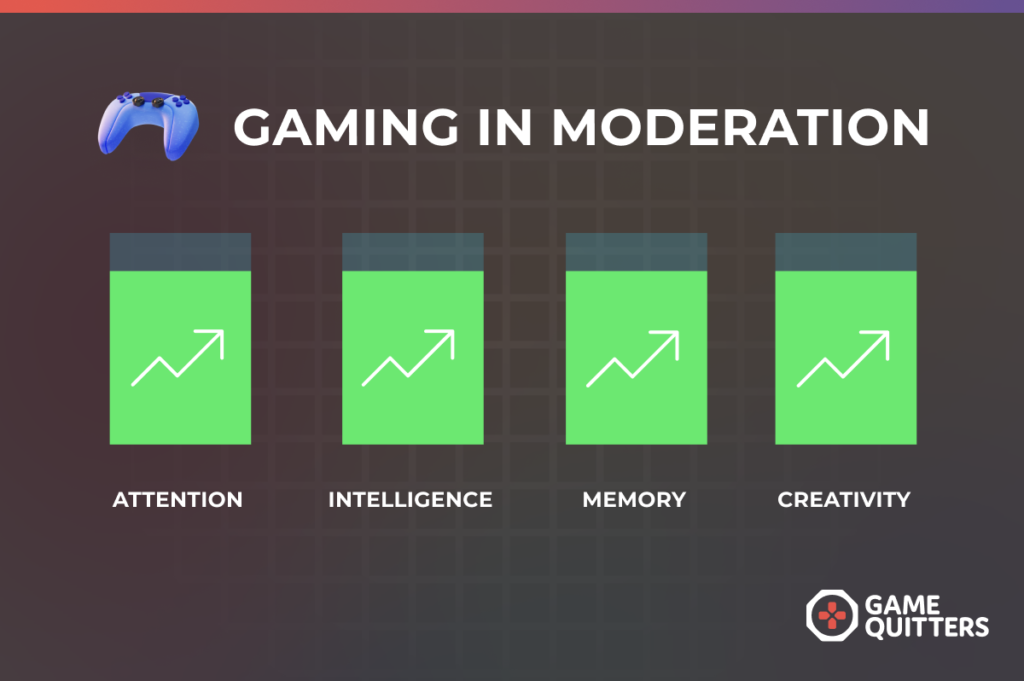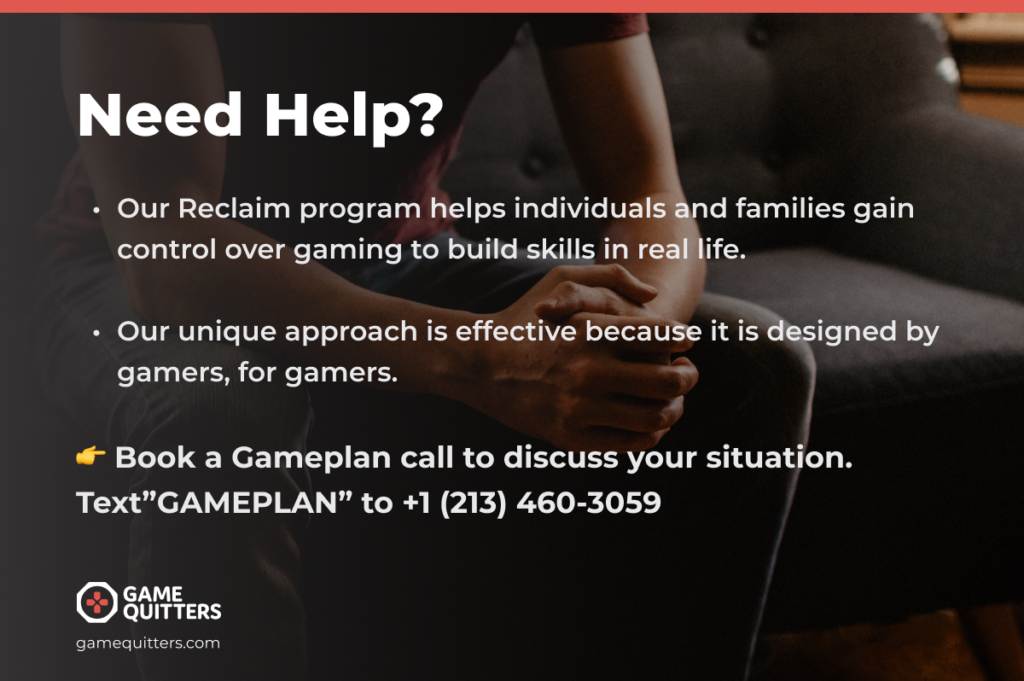
ADHD and Video Game Addiction – Your Questions Answered
It’s widely recognized that ADHD can make people more prone to video game addiction. But what are the signs that you or a loved one may be playing problematically? In this article we explore the common symptoms of gaming addiction, explain how they may affect people with ADHD, and share tried and tested tips for regaining a healthier game/life balance.
If your child has ADHD and is a keen gamer, our ADHD guide for parents is a useful read alongside this article.
Why do video games appeal to people with ADHD?
Living with ADHD can be stressful and some people suffer from anxiety. However, research has found that simple video games like Angry Birds may enhance emotional well-being; they can help to improve mood, promote relaxation, and reduce anxiety 1 1. https://www.apa.org/monitor/2014/02/video-game × . The study also highlighted that video games enable players to build emotional resilience – a valuable skill for people with ADHD to develop in order to deal with the day to day challenges they face.
People with ADHD are often drawn to playing video games because it’s a safe space. Those who lack social skills and feel excluded at school or work are often more confident about interacting with others while gaming. This is because there’s no need to stay focused on conversations, read facial expressions, or pick up on social cues. It’s much easier to respond appropriately in virtual situations as an avatar.
Another symptom of ADHD that video games can help with is lack of concentration. The immediate and frequent feedback of video games makes people with the condition able to focus (often called ‘hyperfocus’) for longer periods in order to progress through the game and achieve goals. They can learn from their actions during gameplay, which is motivating and rewarding. Making mistakes is all part of the process, and unlike in real-life situations there’s no chance of being mocked or teased.
These benefits of playing video games can make some people with ADHD ask themselves, “Am I using video games as a coping mechanism and if so, is that a problem?” While some individuals with the condition have a healthy game/life balance, others struggle to keep their gaming under control and this can lead to video game addiction.
Why are people with ADHD more at risk of video game addiction?

The ‘hyperfocus’ that some people with ADHD experience when playing video games can make it difficult for them to stop gaming. So, does ADHD make you addicted to video games?
We don’t know what percentage of people with ADHD play video games but we do know that there’s a link between ADHD and video game addiction. A two-year study of 17 to 29-year-olds across more than 300 gamer groups in South Korea found that:
- 59% of participants with internet gaming disorder had ADHD
- 82% of participants with gaming disorder had ADHD
Please note: Internet gaming disorder and gaming disorder are both terms used to describe excessive gaming that has negative consequences, but the former relates to internet-based gaming only, whereas the latter encompasses all types of gaming.
What are the signs of too much gaming?

People with ADHD tend to have similar signs of video game addiction to those without ADHD. These include unsuccessfully trying to cut down or stop playing, withdrawal from friends and family, loss of interest in activities they used to enjoy, and continuing to game despite the problems it causes. For video game addiction to be diagnosed, they must have been showing signs of problematic use for at least a year. However, there are other more physical signs that those close to them may notice sooner.
So, what are the physical symptoms of too much gaming? One of the first things that tends to suffer is sleep. We hear from many parents and partners who are concerned about their loved ones staying up late, gaming all night, or waking in the early hours to play. Sleep deprivation can manifest in different ways, affecting their mood and behavior, causing headaches, and making it even harder to concentrate during the day at school or work. This can be particularly problematic for people with ADHD who may struggle to focus even after a good night’s sleep.
Other physical symptoms of video game addiction are triggered by leading a sedentary lifestyle. Hours spent hunched in front of a screen, repeating the same movements, and neglecting to eat or drink – or bingeing on unhealthy snacks and fizzy beverages – will take its toll. Obesity and heart problems can start to develop, along with repetitive strain injury, and sometimes secondary addictions can occur, such as soda addiction. Research has found that eating a healthy diet appears to decrease the risk of ADHD by 37%, whereas a diet of processed food, and consuming high amounts of artificial food coloring and sugar, seems to increase the risk of ADHD by 92% and 51% respectively 2 2. https://www.ncbi.nlm.nih.gov/pmc/articles/PMC9608000/ × .
How can gamers with ADHD play more responsibly?

As experts in video game addiction, we’re often contacted by gamers and parents of gamers with ADHD. They want to know how to reduce game play to a manageable level but don’t know what steps to take. Here are some tried and tested tips to help build healthier gaming habits.
1. Set time limits for gaming sessions
To help you decide on appropriate boundaries, we recommend you check out these screen time guidelines.
Parents: Make sure you monitor that your child is sticking to whatever screen time limits you’ve agreed. Use a timer or set an alarm and warn them that the session is coming to an end. Expect some pushback but if you’re consistent and stick to your guns it will soon become the new normal. Give praise when they step away from the screen, which is a good dopamine boost for kids with ADHD.
Gamers: Set yourself a daily screen time limit and remember this should include all online activities – scrolling social media, online shopping, checking news feeds, etc – as well as gaming. Use apps, alarms, or other tools to help you stay on track. Remove all game-related items from your bedroom so you’re not tempted to play at night. Delete gaming apps from your phone to stop you playing mindlessly when you’re on the go. Ask friends and family for support while you try to get your gaming under control.
2. Find video games that help with ADHD
Once you’ve decided on a daily screen time limit, consider the best types of video games for people with ADHD. You may have heard of EndeavorRx, the FDA-authorized video game that’s available on prescription. It’s specifically designed to help improve the attention of 8 to 17-years-olds with ADHD. The game developer, Akili, has restricted the amount of time kids can spend playing EndeavorRx. Once five missions are complete, the game will not allow them to play any more until the next day.
Although not specifically aimed at people with ADHD, video games designed for a mainstream audience can help manage the symptoms of ADHD too. For example, Roblox, Fortnite, Guitar Hero, and Minecraft are among the titles that may improve memory, focus, communication, and other valuable life skills that you or your child may lack.
3. Encourage in-person socializing
Many people with ADHD find it difficult to make friends because they’re less aware of other people’s thoughts and feelings, and don’t always know how to respond. But the combination of ADHD and long gaming sessions makes it even harder to develop and practice relationship skills. That’s why it’s important to regularly socialize with peers, to learn how to interpret facial cues and body language signals during face-to-face conversations and interactions.
4. Find alternative hobbies to video games
Get inspired by these hobby ideas and screen-free activities.
Parents: The amount of input you have in planning your child’s schedule will depend on their age. It’s easier to be more hands-on if they’re younger, but you can still try to influence how teens spend their time. Getting out of the house and away from the games console will mean they’re less likely to want to play.
Gamers and parents: Any hobbies and interests that involve movement are particularly beneficial because people with ADHD have low dopamine, and exercise provides a natural dopamine boost that can help ease physical symptoms and improve emotional well-being.
Need help?

Are you worried that you or your child with ADHD might be addicted to video games? If so, take our short quiz for gamers or test for parents to find out whether the gaming behavior is cause for concern. If they, or you, meet criteria for ADHD video game addiction, we can help.
As experts in gaming addiction, we’ve supported gamers and families all over the world, including those with a gamer in denial.
Take the first step and apply for a Gameplan strategy call. During the call, we’ll discuss your situation and explain what’s involved in our coaching programs. (Please note that we have limited spaces on the programs and are unable to accept all applicants.)
Alternatively, you can join our parent Facebook group.
You can also watch our video on the 3 secrets of gaming addiction.
